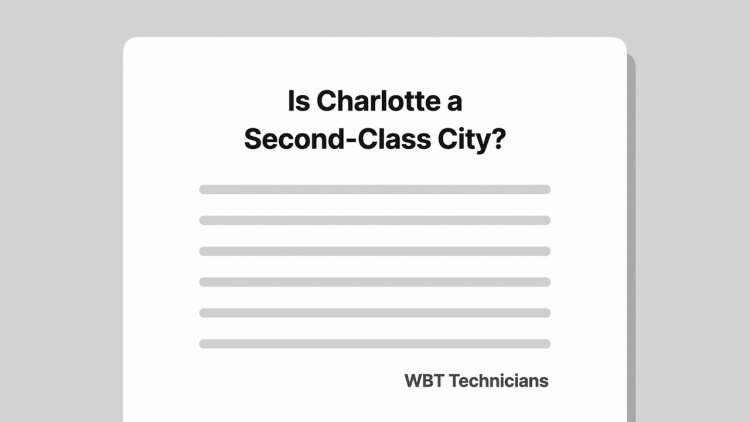National Labor Relations Board v. Local 1229, International Brotherhood of Electrical Workers (Jefferson Standard Broadcasting Co.)
United States Supreme Court
346 U.S. 464 (1953)
- Written by Rose VanHofwegen, JD
Facts
Jefferson Standard Broadcasting Company (defendant) operated Charlotte, North Carolina, radio and television station WBT. Local 1229 of the International Brotherhood of Electrical Workers (plaintiff) represented the station’s technicians. When negotiations over a new annual contract reached an impasse, the union began peacefully picketing the station. But after six weeks, technicians printed and distributed handbills attacking the quality of WBT programming without referencing the labor dispute. Identifying its source as “WBT Technicians,” the handbill accused the station of treating Charlotte as a second-class community because WBTV offered only recorded broadcasts without local programming. In response, WBTV fired 10 technicians, and the union filed unfair labor practice charges challenging their terminations. The National Labor Relations Board (NLRB) ordered one technician who had not sponsored or distributed the handbill reinstated but found the station fired the other nine for cause without violating federal labor laws. The appellate court ordered a remand for the NLRB to make additional findings, but instead the Supreme Court granted review.
Rule of Law
Issue
Holding and Reasoning (Burton, J.)
Dissent (Frankfurter, J.)
What to do next…
Here's why 910,000 law students have relied on our case briefs:
- Written by law professors and practitioners, not other law students. 47,100 briefs, keyed to 997 casebooks. Top-notch customer support.
- The right amount of information, includes the facts, issues, rule of law, holding and reasoning, and any concurrences and dissents.
- Access in your classes, works on your mobile and tablet. Massive library of related video lessons and high quality multiple-choice questions.
- Easy to use, uniform format for every case brief. Written in plain English, not in legalese. Our briefs summarize and simplify; they don’t just repeat the court’s language.





